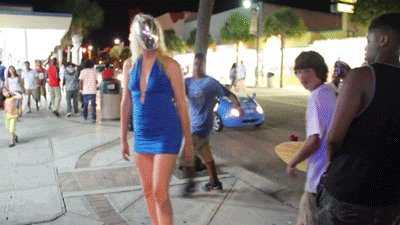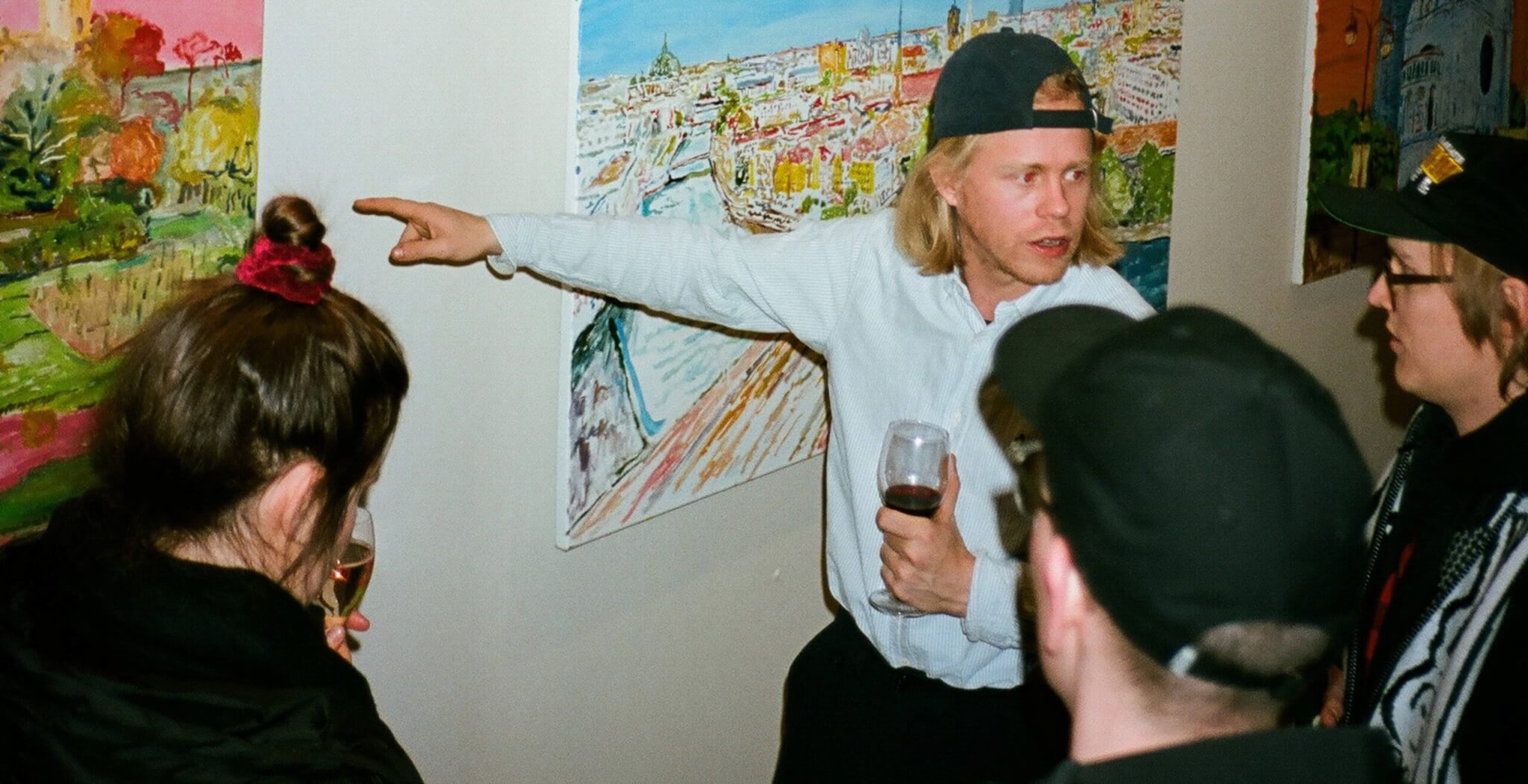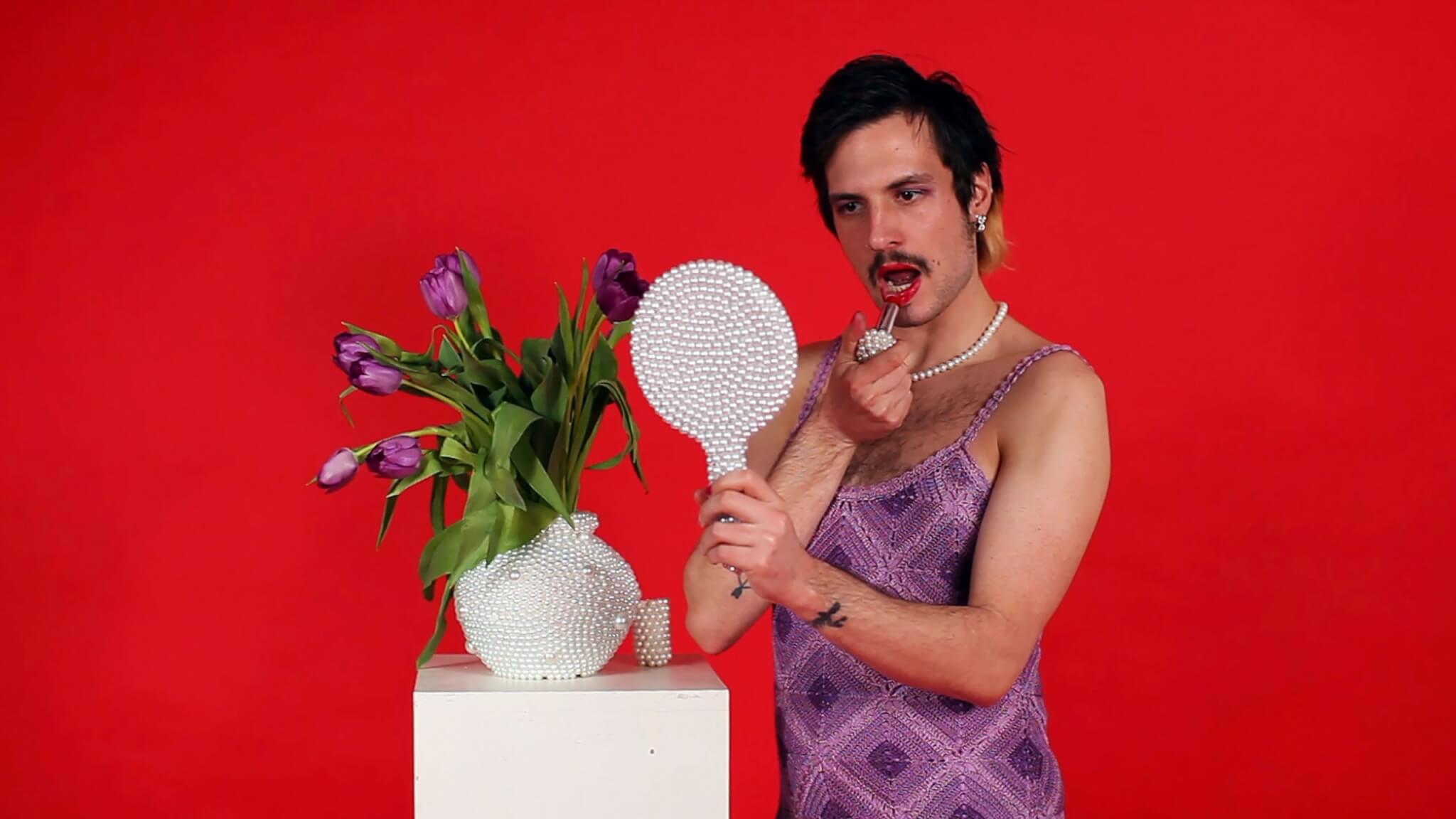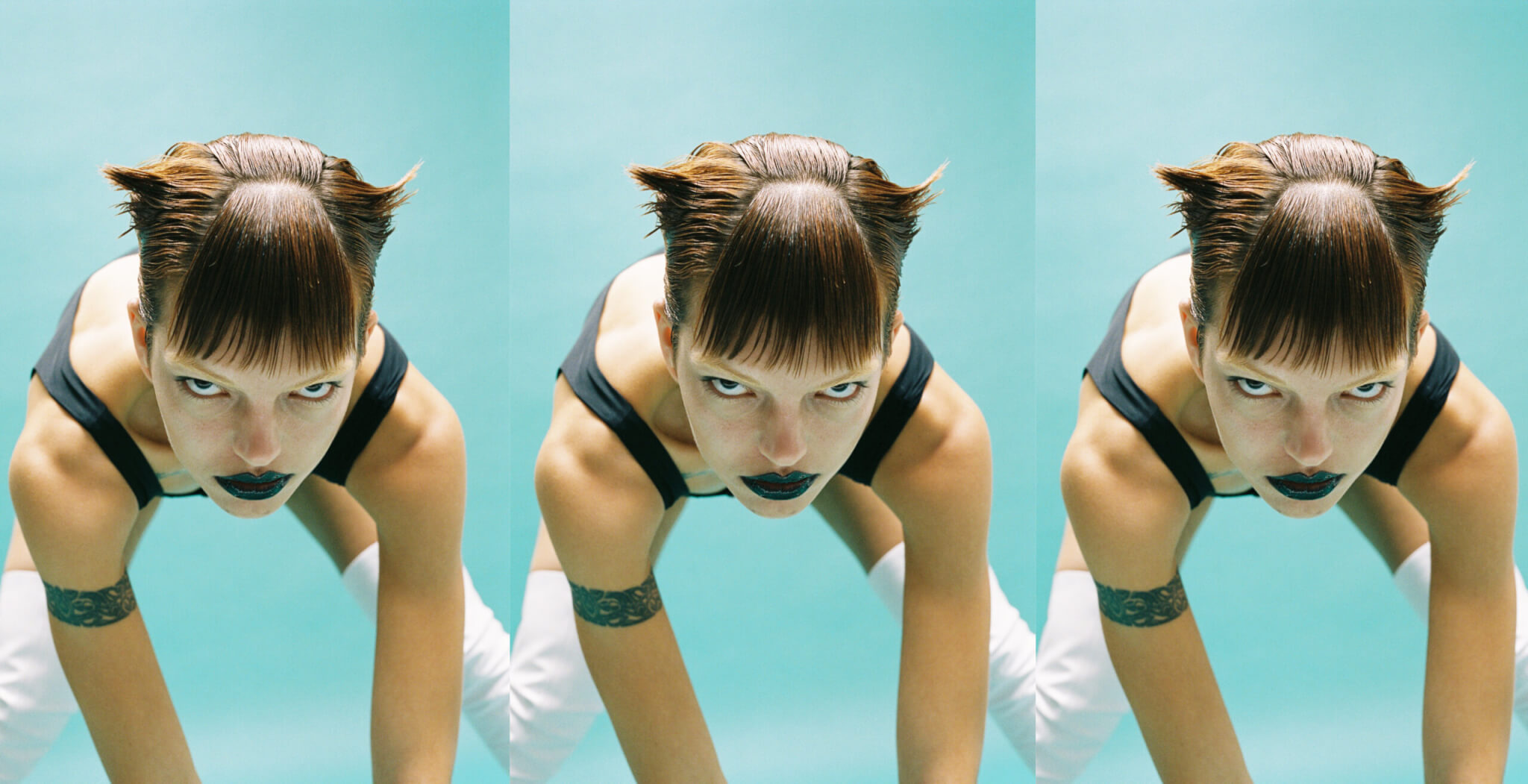From Galleries to Reality: American Reflexxx Sheds Light on Cultural Dynamics
Over a decade ago, in 2012, director Alli Coates and performer Signe Pierce headed over to Myrtle Beach in South California to take art performances into unfamiliar spaces. Little they knew that this experiment was going to reveal so clearly cultural issues ingrained in American society—and one might even consider, in many other modern societies. Female objectification, transphobia, misogyny and repulsion towards what’s unknown are among the main sentiments that can be grasped in this 14-minute-long film.
Watching American Reflexxx, a video that was released and went immediately viral in 2015, feels uncomfortably familiar: hostile environments that other and bully whoever falls out of the norm. Retrospectively, one could imagine that things have greatly changed in the last decade, but speaking with Signe, the performer of America Reflexxx, feels like these issues are still very present, mediated by dynamics of power, trauma and violence.
I had seen before American Reflexxx, I don’t know where, but I saw it again recently in an exhibition in Berlin, at Künstlerhaus Bethanien. I think the video is and will continue to be relevant for the next years. So maybe let’s start by discussing the main idea behind American Reflexxx?
American Reflexxx is a collaboration that I did with my former partner, Alli Coates, and she’s the one who captured it. I was in my early mid-twenties and I had been a performance artist and also, what I call myself, a reality artist—I’ve used this term to describe the nature of what I’m interested in doing as an artist, to talk about what it means to be real, what it means to be alive. The notion of taking the artist out of the gallery or out of the traditional stage space and using myself as sort of an object to create art with the audience. An interaction and not just like they’re the audience and they just watch.
I was very much wrapped up in ideas surrounding femininity and what it means to be a woman, and really noticing the ways that I’m consistently othered because of my gender and noticing the way that I’m consistently devalued in a man’s world. These things were going on in my mind in my early twenties. Since then, I have weirdly shifted and shared some of these frustrations in a strange way. Back then, I was kind of really being driven mad by the consistent objectification and othering of my person because I’m a woman.
So I was like, I’m going to tie my hair up and I’m going to use pinks and neons and sexual energy to play with so many of the stereotypes surrounding femininity. I had been performing with this sort of hyper-stripper energy in some galleries and museums. But being a stripper in a gallery felt like, what is this doing? What is this really saying? There are a lot of like queer people, you know, queer underground events. And I often felt like I was preaching to the choir. Doing queer performance art in the gallery—we already know this. We already know that we’re oppressed. We already know that there’s objectification. I wanted to take this into reality, into a space where people didn’t know.
They’re not intended to react to queerness.
Exactly. And also, they’re not exposed to art. The art world is kind of glitched out and made it so that it’s really difficult to access. But art is a portal, it’s a shamanistic way for us to really express and experience the heights of reality.
That’s when Alli and I, in a lesbian relationship, had been consistently dealing with objectification in public when kissing or holding hands. Men kept coming up to us trying to take from us, kind of feeling this entitlement on our energy. So Alli suggested to visit her family in Myrtle Beach, South Carolina and do something there, with the hyper objectification of our own personal relationship.
I found this mirror mask and I knew that if I paired it with the stripper dress that I had been wearing in my performances, it was gonna be a beautiful metaphor for what I felt like. I have this term that I use objectifying you, objectifying me. That’s what I often feel like I do when I present in a hyper-femme way and walk down the street in New York City. I was reading a lot Baudrillard and the theories of masking and representation. The persona versus the mask of the self that’s put on.
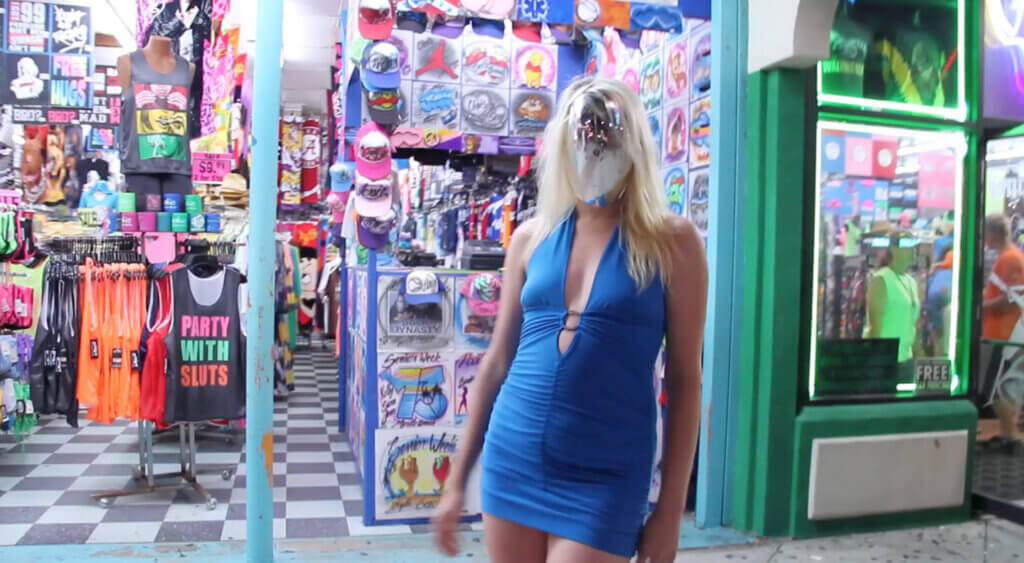
And what happened?
We went on a Saturday night at around 10pm in the middle of summer. I could feel that the energy in the air was really intense and I felt that my animal instincts kicked up and I thought, that’s going to be weird. So, I made a decision right before we started filming. I looked at Alli and I was like, do not stop filming until I take the mask off. That was the only rule.
But little did we know that a huge part of what was going to happen was these people demanding that I take the mask off. Alli became concerned very quickly, noticing how they started throwing things at me. Luckily we had that locked in and that’s why we got what we got.
So it’s like men and women could objectify themselves and only objectify you when you had taken the mask off, when the performance is over and they can construct the subject behind it.
Yeah. A man asked, will you do me later? And he kind of set it off. Then, the next thing it’s all these people questioning if I’m a trans or a man, and who was this dude behind the mask. I was offended a bit. But then I thought, wait a minute, this isn’t personal because, first of all, these people don’t fucking know who I am at all. And second, just because they say I am something doesn’t mean I am, right?
I got this little courageous burst that was like, no, I’m not going to take this mask off. Like, why do you think that it’s okay to just try and take something away from me? Because you decided that you feel entitled to my autonomy?
This piece has become part of a conversation surrounding trans personhood and the trans experience, and I’m energetically inclined to bolster that experience. Witnessing the violence that goes on just by going under that mask for an hour really showed me in a bird’s eye what goes on for so many people—so many beautiful souls who are just trying to live their truth. It was really eye-opening for me.
I wonder if you felt like a stranger before you put on the costume or if you became a stranger when all of this was happening.
I’ve always felt a little different and a little othered, and I think a lot of artists and creative spirits relate to that. It’s alienating but from an empowered state.
American Reflexxx was an experience of what it means to be other. However, again, it was from a space of empowerment—we freaks need to be proud of that. We need to be proud to be other and not let anybody take that away just because they themselves don’t get it.
After all, I think it’s more of a critique and a signifier of the type of culture that we train and ingrain in the masses, where there’s no exposure to art, there’s a suppression of individuality, artistic energy and identity. There’s a fear of the other and the fear of the unknown, fear of straying too far off, following the heteronormative patriarchal power, in fear of a female planet. It’s less about the people who hurt me and more about the cultural simulated tricks that have brainwashed us into a monoculture.
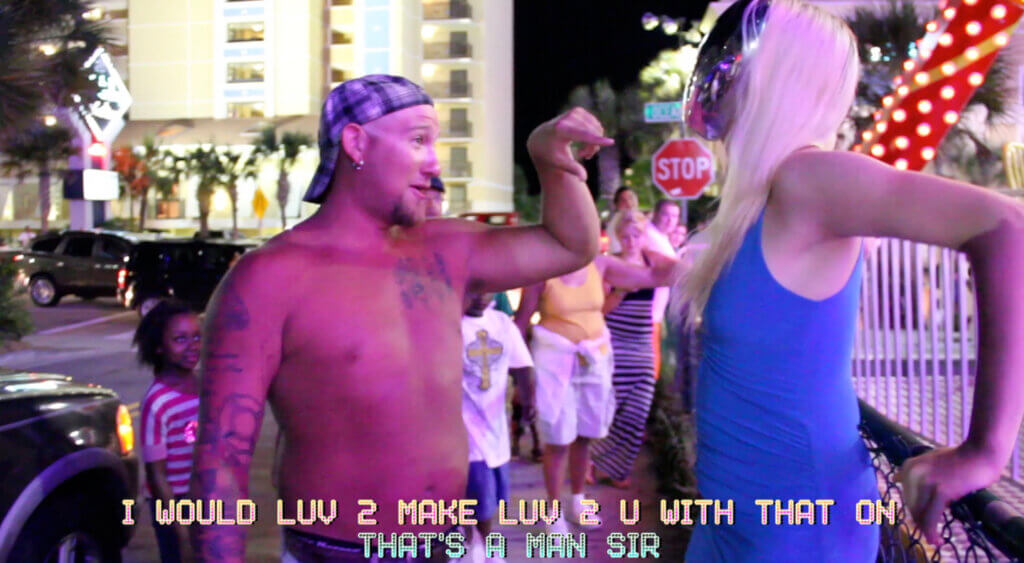
If you could have defended yourself in that situation, what would you have done?
I ran the simulation through my head a couple of different times of what it would be like to take the mask off and say something or do something. But again, that was not the film I came here to make. It was not a gender reveal party.
And I’m so glad that we did it, because we were kind of baby artists at that point, with dreams and ambitions and visions and concepts and ideas in our head. But we had no career. We had this in our hands and it was gold, and in my opinion, that is our defense.
American Reflexxx changed my perspective not only as an artist but as a healer and thinker, about consciousness and trauma. For instance, the women who tried to hurt me throughout the film are mom and daughter, and that tells me something about a cycle of abuse.
Mom and daughter?
Yes. We were editing and noticed that the little girl who keeps trying to trip me wears a black shirt and white shorts like the woman who ends up lunging at me. When I kind of push back on her a little, and give her masculine energy, is when the mom charges at me like a bull and knocked me over. It’s interesting to see that whenever I’m getting feminine, whenever I’m being sort of sultry and seductive, that’s when everybody starts throwing bottles at me. Whenever I dumb up and mask up, that’s when everybody runs free. It’s really an interesting dynamic about the power of the masculine body.
When the film came out, many people suggested to hold these people accountable. But I have no interest in picking at an abusive, household family structure. However, it’s helped me understand how abuse, trauma and violence are ingrained in consciousness through experiences, and how a lot of the people who are throwing things at me, they themselves have anger and abusive tendencies that were really encoded in their experience.
Where is this conversation today?
It’s a conversation about simulation and about the stigmatisation that we’ve been under for a really long time, you know what I mean? It’s not just women. It’s racial. It’s socio-political.








